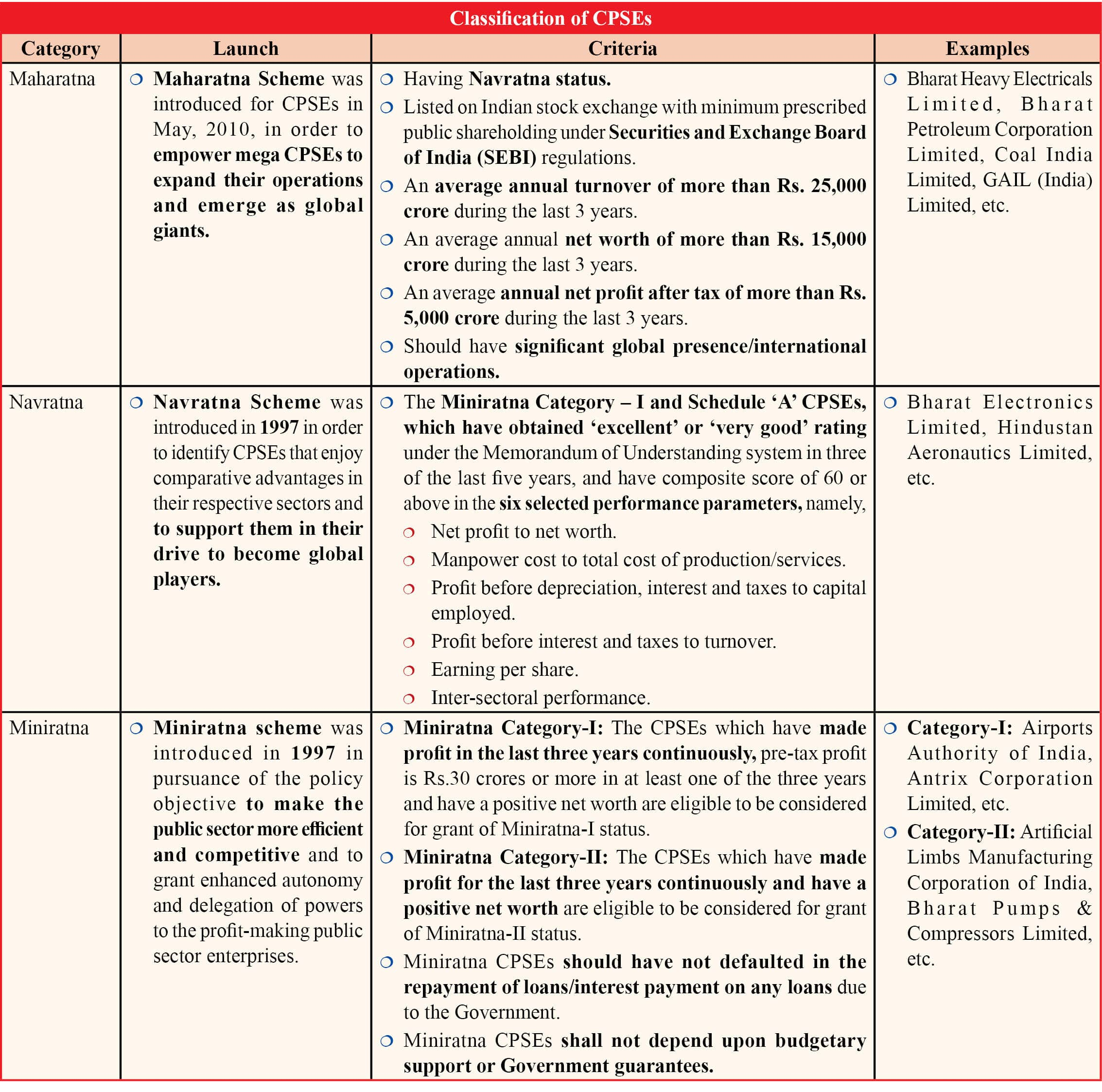Maharatna Status to REC
Why in News?
Recently, Rural Electrification Corporation (REC) has been accorded the status of a ‘Maharatna’ Central Public Sector Enterprise (CPSE).
What do we know about REC & Maharatna Status?
- About REC:
- REC is a Non-Banking Financial Company (NBFC), incorporated in 1969, focusing on Power Sector Financing and Development across India.
- It comes under the purview of the Ministry of Power.
- It has been appointed as a Nodal Agency for Government of India’s flagship schemes as following:
- Pradhan Mantri Sahaj Bijli Har Ghar Yojana (SAUBHAGAYA)
- Deen Dayal Upadhaya Gram Jyoti Yojana (DDUGJY)
- National Electricity Fund (NEF)
- REC also assists the Ministry of Power in monitoring the Ujjwal Discom Assurance Yojana (UDAY).
- Benefits to Maharatna Status to REC:
- The Board of a ‘Maharatna’ CPSE can make equity investments to undertake financial joint ventures and wholly-owned subsidiaries and undertake mergers and acquisitions in India and abroad, subject to a ceiling of 15% of the Net Worth of the concerned CPSE, limited to ₹5,000 crores in one project.
- The Board can also structure and implement schemes relating to personnel and Human Resource Management and Training.
- REC now can also enter into technology Joint Ventures or other strategic alliances among others.
- Maharatna Status:
- The Maharatna dispensation was ushered in by the Union government for mega Central Public Sector Enterprises (CPSEs) to become global giants (introduced in 2010).
- CPSEs are those companies in which the direct holding of the Central Government or other CPSEs is 51% or more.
- “Maharatna” status is granted to a company which has recorded more than Rs. 5,000 crores of net profit for three consecutive years, an average annual turnover of Rs. 25,000 crore for three years or should have an average annual net worth of Rs. 15,000 crore for three years. It should also have global operations or footprints.
- A CPSE should also have a Navratna status, be listed on an Indian stock exchange.
